B.Des. User Experience Design
Programme Overview
The MIT-WPU B.Des. (User Experience Design) is a unique, interdisciplinary programme that provides you with the tools to design intelligent, interactive, and rewarding user experiences across both digital and physical spaces. This programme combines creativity, technology, and human-centred design principles, preparing you for a wide range of opportunities to meet the rapidly evolving needs of the user experience (UX) domain. The curriculum covers user-centred design, data visualisation, and information architecture, equipping you with the necessary skills and research methodologies to become a successful practitioner in the competitive and constantly evolving digital design environment.
The design process bridges two seemingly disparate fields: on one hand, design fundamentals rooted in psychology and human behaviour, and on the other, cutting-edge technologies like Artificial Intelligence, Machine Learning, and the Internet of Things (IoT). As a result, you will be prepared to create standard systems such as websites and apps, as well as next-generation innovations such as virtual reality (VR), augmented reality (AR), and web-of-things technology.
Through internships, live projects, and industry collaborations, you will apply your learning to solve real-world problems, fostering critical thinking, creativity, and problem-solving skills. A strong focus on UX design ensures that you are well-equipped for careers in digital design, product design, UI, user experience strategy, and more, across a variety of sectors, including IT, healthcare, e-commerce, banking, automotive, entertainment, and media.
Major Tracks
- User-centred design
- Data visualisation
- Information architecture
Duration & Fees
Duration
4 Years
Applications Open for 2026
Fee Per Year
₹ 4,25,000
Scholarship
| Scholarship for AY 2026-27 | MIT-WPU CET CBT Score | UCEED Rank |
|---|---|---|
|
Dr. Vishwanath Karad Scholarship |
93 & Above |
Upto 800 All India Rank |
|
MIT-WPU Scholarship I |
91 & Above |
801-2000 All India Rank |
|
MIT-WPU Scholarship II |
90 & Above |
2001 to 2500 All India Rank |
Note: Scholarships will be awarded based on the MIT-WPU CET 2026 Computer-Based Test (CBT) score or UCEED 2026 Score.
Terms & Conditions Apply:
- All Scholarships are awarded on a First Come First Serve basis. All Scholarships are awarded as fee adjustments.
- To continue the scholarship for the entire duration of the programme, a minimum level of the academic score has to be maintained at an 8 CGPA across all semesters, attendance is to be maintained at a minimum of 80 percent and there should be no disciplinary action against the student.
For more detailed information visit our website: https://mitwpu.edu.in/scholarships
Eligibility
Minimum 50% aggregate marks in Class 10+2/ HSC or its equivalent examination in any stream with English subject (Minimum 45% aggregate marks for candidates belonging to the Reserved Category from Maharashtra State).
Selection Process
Admissions will be based purely on the merit of MIT-WPU CET 2026/ UCEED 2026/ NIFT 2026/ NATA 2026/ NID 2026 score, along with Personal Interaction (PI) and Portfolio Review, as per the prescribed schedule.
A valid score in UCEED/ NATA/ NIFT/ NID may also be considered for the selection process; in such cases, the candidate must additionally appear for the MIT-WPU CET Personal Interaction (PI), Portfolio Review, and Drawing Test as per the schedule
Programme Highlights
- State-of-the-Art Knowledge and Tools : The curriculum combines skills required in the industry like UX design, UI design, and user research methodologies, which postures you for a highly competitive job market.
- Merging Theory to Practical Use : You will learn with an experiential aspect to allow you to produce designs that are grounded in human behaviour, market forces and emerging technology trends.
- Real-World Experiences and Industry Networks : Acts as a bridge to internships and connections with industry partners, allowing you to come in contact with top design and tech organisations and individuals.
- Multidisciplinary Learning : The programme combines principles of design, psychology, technology, and business — to give you a rounded view of the user experience design process.
- Hands-On and Experiential Learning Environment : Fosters experiential learning through creating projects with industry partners to encourage interaction and innovation.
- Extracurriculars and Student Clubs : Be active in clubs and campus events that foster leadership development, networking, and growth beyond the classroom.
- Promote Global Sustainability and Innovation : Fuels socially responsible designs that are accessible and fulfil the variety of needs of a global user group.
- Linkage with Industry : Strong institutional tie-ups with leading tech firms and design studios give scope for internships, placements, and promising career prospects.
- Mentorship and Alumni Network : A vast alumni network offers career guidance, mentorship, and insights that assist you in navigating your academic and professional journey.
- Entrepreneurship and Incubation : Through the Pune Technology Business Incubator (TBI), helps entrepreneurial initiatives through mentoring, funding, and networking, especially for design-based start-ups.
Programme Structure
| Semester | Course Type | Course Name/Course Title | Total Credits |
|---|---|---|---|
|
I |
University Core |
Effective Communication |
1 |
|
I |
University Core |
Critical Thinking |
1 |
|
I |
University Core |
Environment and Sustainability |
1 |
|
I |
University Core |
Foundations of Peace |
2 |
|
I |
University Core |
Yoga - I |
1 |
|
I |
University Core |
SLDP |
1 |
|
I |
Programme Foundation |
Visualisation and Design Fundamentals |
4 |
|
I |
Programme Foundation |
Makers and Tinkers Lab |
3 |
|
I |
Programme Foundation |
Digital Tools |
3 |
|
I |
Programme Foundation |
Introduction to Research, Thinking and Methods |
3 |
|
I |
Programme Foundation |
Crafting Creativity and Impact |
3 |
|
|
Total |
23 |
|
| Semester | Course Type | Course Name/Course Title | Total Credits |
|---|---|---|---|
|
II |
University Core |
Advanced Excel |
1 |
|
II |
University Core |
Financial Literacy |
1 |
|
II |
University Core |
Yoga - II |
1 |
|
II |
University Core |
Co-creation |
1 |
|
II |
University Core |
Indian Constitution |
1 |
|
II |
University Core |
IKS(General) |
2 |
|
II |
University Core |
Sports |
1 |
|
II |
Programme Foundation |
UX Design Innovation |
3 |
|
II |
Programme Foundation |
Interaction Design Fundamentals |
3 |
|
II |
Programme Foundation |
Visual Design Principles |
3 |
|
II |
Programme Foundation |
User Research and Analysis |
4 |
|
|
Total |
21 |
|
| Semester | Course Type | Course Name/Course Title | Total Credits |
|---|---|---|---|
|
III |
University Core |
Research Innovation Design Entrepreneurship (RIDE) |
1 |
|
III |
University Core |
Spiritual & Cultural Heritage; Indian Experience |
2 |
|
III |
University Electives |
UE - I |
3 |
|
III |
University Electives |
UE-II |
3 |
|
III |
Programme Major |
UX Design Principles, Patterns and Processes |
2 |
|
III |
Programme Major |
Front-End Development for Designers |
2 |
|
III |
Programme Major |
Research Representation methods |
2 |
|
III |
Programme Major |
Visual Design for Digital Interfaces |
4 |
|
III |
Programme Electives |
User-Centered Design Process |
2 |
|
III |
Programme Electives |
Information Architecture and Content Strategy |
2 |
|
|
Total |
23 |
|
| Semester | Course Type | Course Name/Course Title | Total Credits |
|---|---|---|---|
|
IV |
University Electives |
UE-III |
3 |
|
IV |
University Core |
Rural Immersion |
1 |
|
IV |
University Core |
Life Transformation Skills |
1 |
|
IV |
Programme Foundation |
UX Prototyping Methods |
3 |
|
IV |
Programme Major |
Ethnography Research |
4 |
|
IV |
Programme Major |
Instructional Design |
2 |
|
IV |
Programme Major |
Mobile and Responsive Interface Design |
4 |
|
IV |
Programme Electives |
Human Machine Interaction |
2 |
|
IV |
Programme Electives |
Information Design Visualization |
2 |
|
|
Total |
22 |
|
| Semester | Course Type | Course Name/Course Title | Total Credits |
|---|---|---|---|
|
V |
University Core |
Managing Conflicts Peacefully: Tools and Techniques |
2 |
|
V |
Programme Foundation |
IKS - UXD |
2 |
|
V |
Programme Major |
Experience Systems Thinking |
3 |
|
V |
Programme Major |
Multichannel Experience Design |
3 |
|
V |
Programme Major |
Design Systems and Component- based Design |
2 |
|
V |
Programme Major |
Tangible User Interfaces |
2 |
|
V |
Programme Major |
Design for Industrial experiences for B2B and B2C |
3 |
|
V |
Programme Electives |
Psychology for UX |
2 |
|
V |
Programme Electives |
Behavioural Design Process |
2 |
|
|
Total |
21 |
|
| Semester | Course Type | Course Name/Course Title | Total Credits |
|---|---|---|---|
|
VI |
University Core |
National Academic Immersion |
2 |
|
VI |
Programme Major |
Advanced User Experience Strategies |
3 |
|
VI |
Programme Major |
UX writing |
3 |
|
VI |
Programme Major |
Design Ethics, Leadership and Professional Development |
4 |
|
VI |
Programme Capstone Project/Problem Based Learning/Seminar and Internships |
Design for Conversational Interfaces |
4 |
|
VI |
Programme Electives |
Experience Game |
2 |
|
VI |
Programme Electives |
Retail Experience Design |
2 |
|
|
Total |
20 |
|
| Semester | Course Type | Course Name/Course Title | Total Credits |
|---|---|---|---|
|
VII |
Programme Major |
Designing for Emerging UX Technologies |
1 |
|
VII |
Programme Major |
UX Design Strategy and Entrepreneurship |
1 |
|
VII |
Programme Major |
Advanced UX Prototyping and User Testing |
1 |
|
VII |
Programme Major |
Designing for Data-Driven UX Experiences |
1 |
|
VII |
Programme Major |
UX Design Portfolio and Presentation |
1 |
|
VII |
Programme Capstone Project/Problem-Based Learning/Seminar and Internships |
Dissertation Project - User Experience Design |
8 |
|
VII |
Programme Capstone Project/Problem-Based Learning/Seminar and Internships |
UXChange |
2 |
|
|
Total |
15 |
|
| Semester | Course Type | Course Name/Course Title | Total Credits |
|---|---|---|---|
|
VIII |
Programme Capstone Project/Problem-Based Learning/Seminar and Internships |
Industry Internship - User Experience Design |
18 |
|
|
Total |
18 |
|
Career Prospects
User Experience Designer
User Interface Designer
User Researcher
Information Architect
User Experience Strategist
Design Researcher
User Experience Writer
Usability Tester
Front-end Developer
Service Designer
Usability Analyst
Innovation Consultant
UX / UI Design Manager
Innovation Consultant
Creative Technologist
Freelance/Independent Designer
Academic/Researcher
Entrepreneur
Programme Outcomes
- Use a fundamental understanding of user-centred design principles, tools and techniques to create positive and engaging user experiences.
- Leverage research methods to understand user needs and behaviours that inform the design process.
- Design information architectures and user interfaces that maximise usability and navigation.
- Use tools that allow you to create a few interactive prototypes and run usability testing to iterate on the design.
- Collaborate with cross-functional teams to capture business requirements, align technical architecture, and ensure user-centric design.
- Create consistent and visually appealing user interfaces that adhere to visual design principles.
- Abide by accessibility standards and inclusive design principles to make sure all users can use the experiences.
- Present your design ideas, research insights, and practical recommendations to stakeholders.
- Methodically test your user interface and provide critical information for backup.
- Show professionalism and willingness for continuing education and advancement in UX design.
Placements & Recruiters
100% Placement Assistance
Top Recruiters
FAQs
Yes, 100% placement assistance, career counselling for jobs or placement by top recruiters from the industry are offered by MIT-WPU.
MIT-WPU's collaborative, creative, and innovative ambience allows students to immerse themselves in activities related to design which promotes leadership and teamwork.
MIT-WPU’s B.Des. (User Experience Design) programme teaches you how to design intuitive digital products and create great experiences for users. You will be taught by experienced faculty members and receive practical experience through projects, internships and partnerships with industry leaders.
- Design Thinking : Culture Your Curiosity To Solve Problems
- Research :Focus on users' behaviour to design better experiences.
- UI Design : Design Visual Elements and Interfaces.
- Visual Design : Create aesthetic and functional design skills for user interfaces.
- Usability Testing : Testing and iteratively refining designs to make sure they will perform well for users.


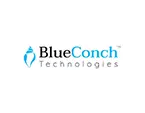
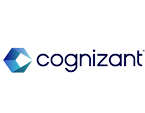
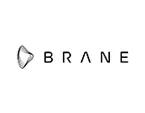
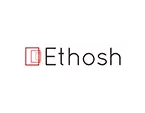


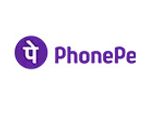








 admissions@mitwpu.edu.in
admissions@mitwpu.edu.in
